If you or someone you know is having trouble coping with stressful events, the Saint Louis University Counseling Center is here to help. During normal business hours, contact us by phone at 314-977-8255 (TALK) or visit us at the clinic. Business hours are 8 a.m. to 5 p.m. Monday through Friday during the academic year or 9 a.m. to 4 p.m. during the summer break.
The University Counseling Center provides support services to any qualifying student who may be having an extremely difficult time managing emotions, coping with grief and loss and/or who are dealing with the impact of a traumatic incident (e.g. sexual assault/interpersonal violence).
Crisis services are also designed to work with a student who is experiencing a crisis or mental health emergency that disrupts functioning abilities and/or results in feelings or behavior that indicate the intent to self-harm or harm others.
For those students who present with high risk needs, behaviors and/or suicidal/homicidal ideation, a UCC clinical staff member/clinical graduate assistant will meet immediately with the student for a crisis support session. These sessions are available between 8 a.m.-4:30 p.m. Monday through Friday.
After Hours Crisis Support
Outside of normal business hours (including weekends and holidays) students in crisis have several options:
- Call 911 immediately if you are facing a life-threatening emergency
- If you or someone you know needs support now, call or text 988 to reach the suicide and crisis lifeline, or visit 988lifeline.org to chat with someone online
- Contact your resident advisor or residence life professional staff
- Call the Department of Public Safety at 314-977-3000
- Consult with the University Counseling Center 24/7 behavioral health nurse triage line by calling 314-977-8255 and press option #9. Information about this service is explained below.
About the Nurse Triage Line
The triage line, operated by Fonemed, a telehealth company, provides students an opportunity for immediate access to a behavioral health nurse for routine and crisis assistance 24/7. The scope of the triage line is not to provide immediate counseling, but to assess a presenting concern and advise a student what to do. For students who desire a connection to a licensed mental health professional, they can request to be connected to MDLive - which will make arrangements for the student to have a virtual counseling appointment at a later time (typically within 24-48 hours). For urgent safety needs, the nurses will instruct a caller to either contact 911, DPS or proceed to the nearest ER for a full safety assessment. For routine needs, a nurse will offer self-help suggestions and refer the student to an appropriate level of care if that is indicated.
Additional After-Hours Resources
- Suicide and Crisis Lifeline: 988
- Behavioral Health Response (BHR): 314-469-6644 or 800-811-4760
- SSM Health Saint Louis University Hospital: 314-577-8000
- Life Crisis Services: 314-647-4357
- National Hopeline Hotline (English and Spanish): 1-800-784-2433
- First Call for Help Hotline (English and Spanish): 1-800-492-0618
- The Trevor Project (LGBTQ+ support): 1-866-488-7386
- BlackLine (Black, Black LGBTQI, Brown, Native and Muslim community):1-800- 604-5841
- TransLifeline 1-877-565-8860
For Those Concerned About a Student in Distress
If you live or work on campus, you might encounter a student with mental health needs. There are steps you can take to assist and refer them to helpful resources.
Recognizing the warning signs of a student in distress does not require special training or expertise. It does, however, require an awareness of symptoms. Not everyone will directly state that something is wrong, but language and behaviors often do. Look for changes in the following areas:
Withdrawal
- Shows up for an event or class but leaves early
- Makes excuses to avoid social opportunities
- Doesn't seem to connect with others
- Skips class frequently
- Stays in room or bed all day
- Avoids eye-contact
Troubling Communications
- Intends to harm self or someone else
- Expresses a hopeless or negative outlook
- Blames self or others for mood/behavior
- Speaks in a confused or disorganized way
Major Changes in Mood or Behavior
- Appears agitated, depressed, "checked-out," uptight or on edge
- Neglects personal hygiene or appearance
- Increased use of alcohol or drugs
- Significant weight gain or loss
- Increased sleep or inability to sleep nearly every day
- Decreased ability to concentrate
Don't be afraid to ask "What's wrong?" or "What's going on?" Simply asking the question won't create a problem where there isn't one. Don't underestimate the importance of listening. Without doing anything else, you are providing the support that could help a student feel heard and understood, maybe for the first time. Face-to-face communication is best, when possible, but any (e.g. email, text) communication is better than none.
- Be attentive
- Pay attention to verbal and non-verbal language
- Convey an accepting attitude (e.g., try not to judge or dismiss the person)
Express concern in a calm, non-judgmental way. Provide words of empathy and normalize their difficulties. Let the student know that you are present for them and that you will help connect them with the proper support.
Allow them space and time to share their feelings without telling them to “stop crying” or that “this isn’t a big deal”. Instead use phrases such as, “ It is okay for you to share and express your feelings”, “I can see that you are having a difficult time”, or “I am concerned about you and sense that you might need some additional support”.
Keep in mind that struggling with normal life events does not always require counseling. However, if the situation is causing a severe reaction (e.g. the student seems to be spiraling downward or not functioning well) or it has been ongoing for more than a week or two, then a referral to counseling may be appropriate.
The University Counseling Center staff are here to offer help, guidance and support. If you would like to consult with a staff member about how to handle a student's concerns, call 314-977-8255 (TALK).
When Should I Refer?
- Review the warning signs above to determine if any apply to the student. Trust your own intuition even if there are no identifiable signs.
- If you have immediate concerns about a student's safety (you think he/she might cause harm to self or others), stay with the student and call the Department of Public Safety at 314-977-3000 or 911. Calling 988 is also an option for those struggling with thoughts of suicide.
- If it is not a life-threatening situation but you are still concerned, you can involve DPS and/or accompany the student to the University Counseling Center during regular business hours.
After-Hour Options
- Contact the student's resident advisor or residence life professional staff
- Speak to on-call campus ministry staff at 314-630-9197
- Call the Department of Public Safety at 314-977-3000
- Consult with an on-call UCC staff member at 314-977-8522 (TALK)
How do I Refer?
- Encourage the student to make an appointment directly if possible. You may want to assist them by dialing the number, waiting while the appointment is made or even walking with them to the University Counseling Center.
Learn How to Make an Appointment
Apps for Mental Health Support
Apps shouldn't be used to replace mental health treatment but can be used in conjunction with other campus resources. These are a few suggested electronic resources that can help you develop better coping skills, process stressful situations and improve general focus and attention.
 Calm Calm |
Mindfulness and meditation to bring clarity, joy and peace. |
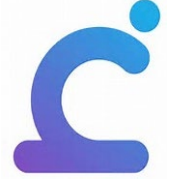 Calm Harm Calm Harm |
Helps manage the urge to self-harm. |
 CBT Thought Diary CBT Thought Diary |
Mood Tracker and cognitive behavioral journal. |
|
|
Choose from guided meditations on everything from managing stress and everyday anxiety to sleep, focus and mind-body health. |
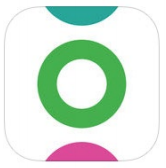 Meditation Studio Meditation Studio |
A collection of guided meditations. |
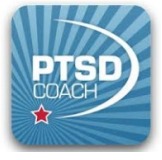 PTSD Coach PTSD Coach |
Intended for use by veterans, military and civilians experiencing symptoms of post-traumatic stress disorder. |
 Relax Relax |
Sleep sounds, relaxing melodies, customization available. |
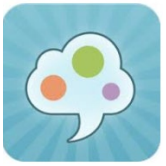 SAM App SAM App |
Helps users understand and manage anxiety. |
 Virtual Hope Box Virtual Hope Box |
Coping, relaxation, distraction and positive thinking. |
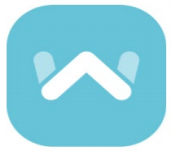 WayForward WayForward |
Overcome anxiety and nervousness related to social situations with short 5-10 minute sessions. |
 Headspace
Headspace